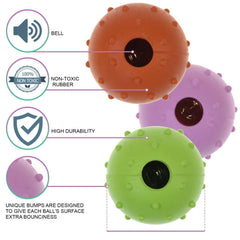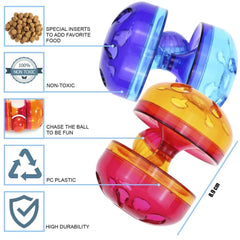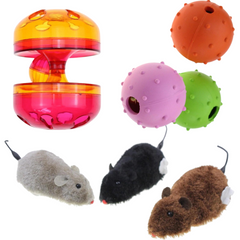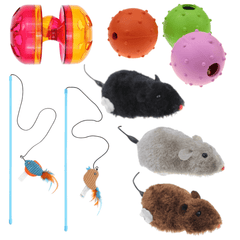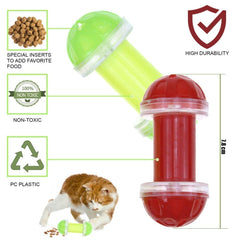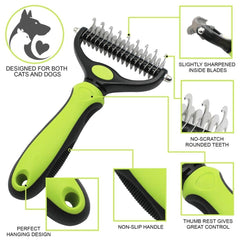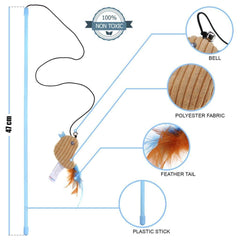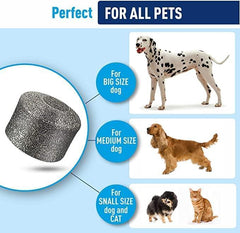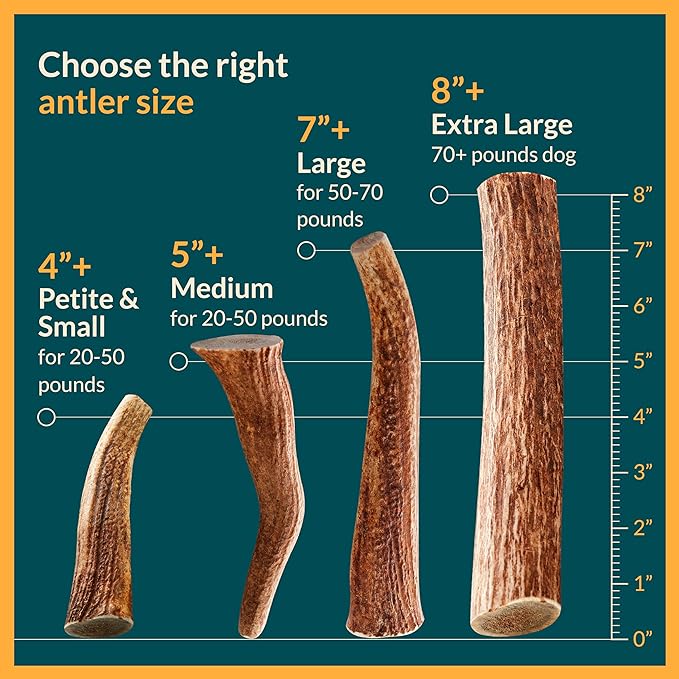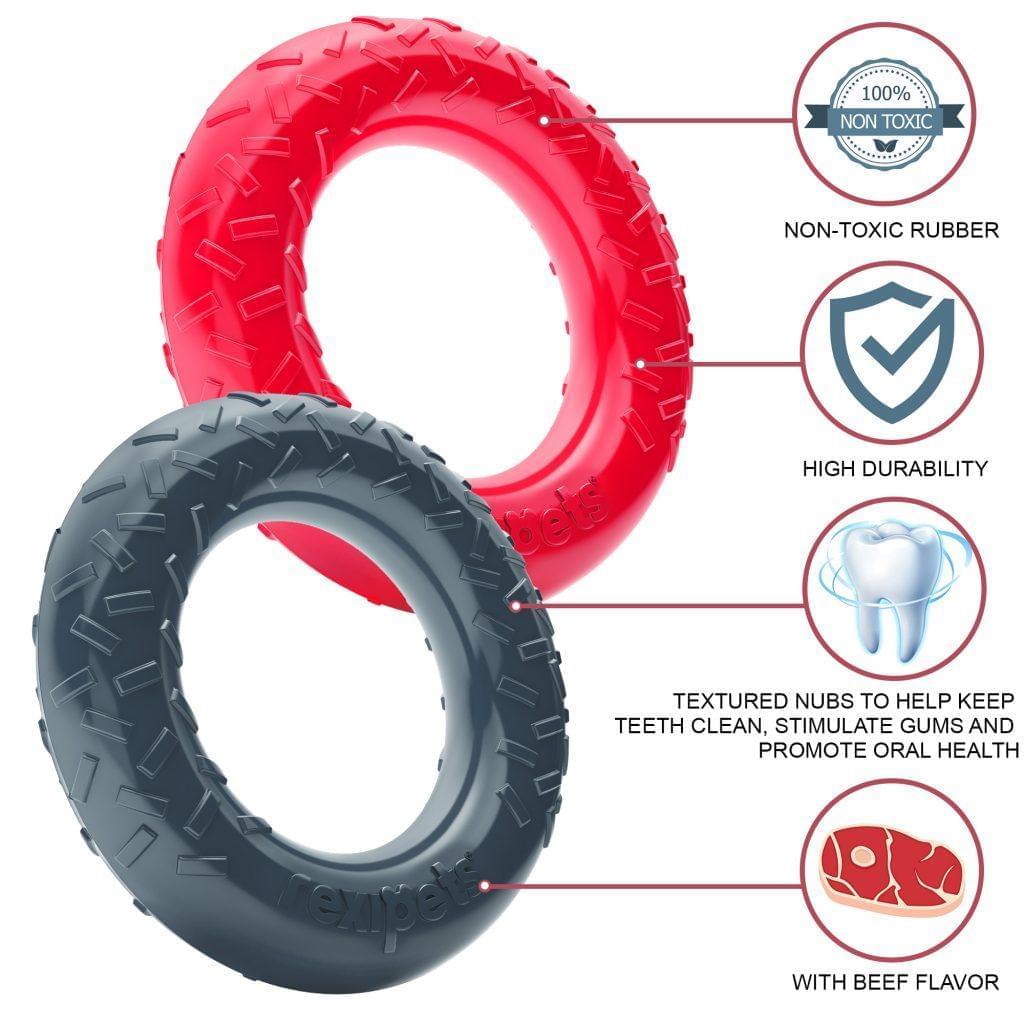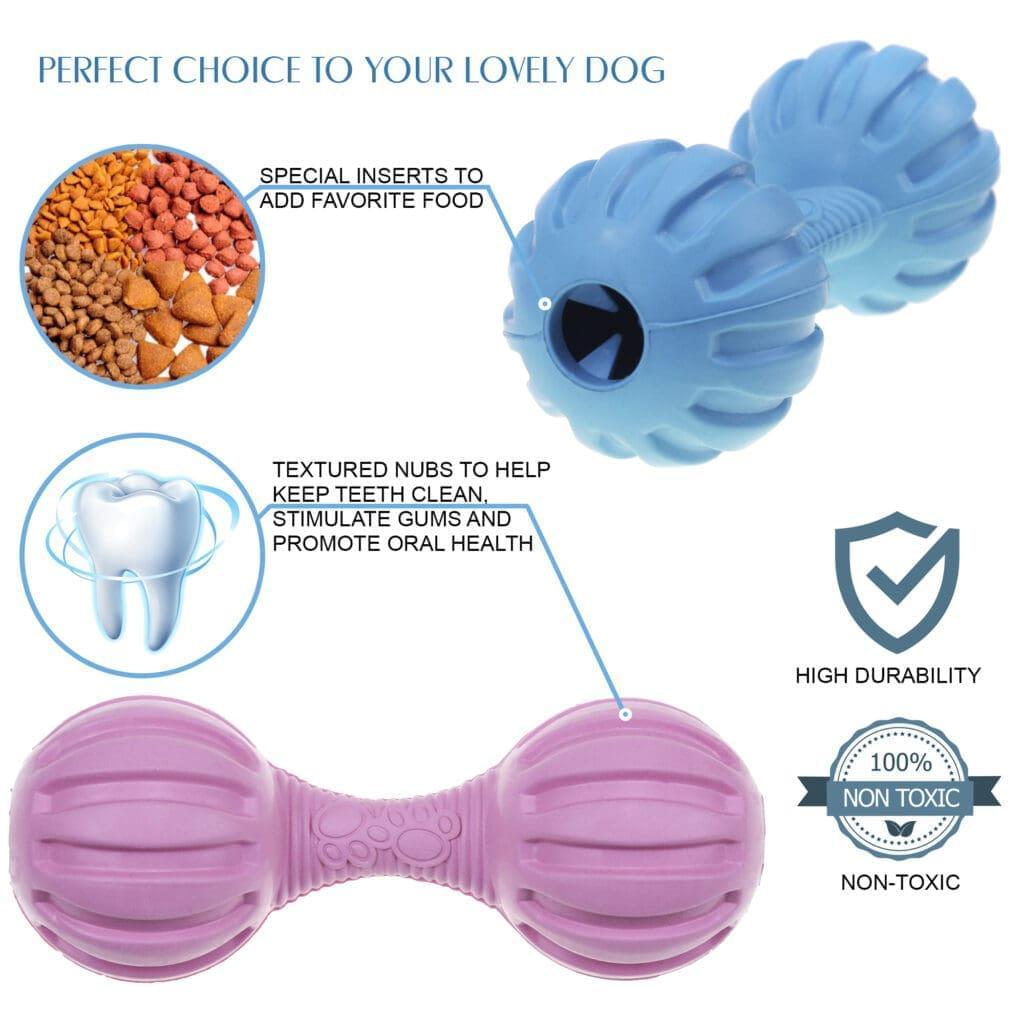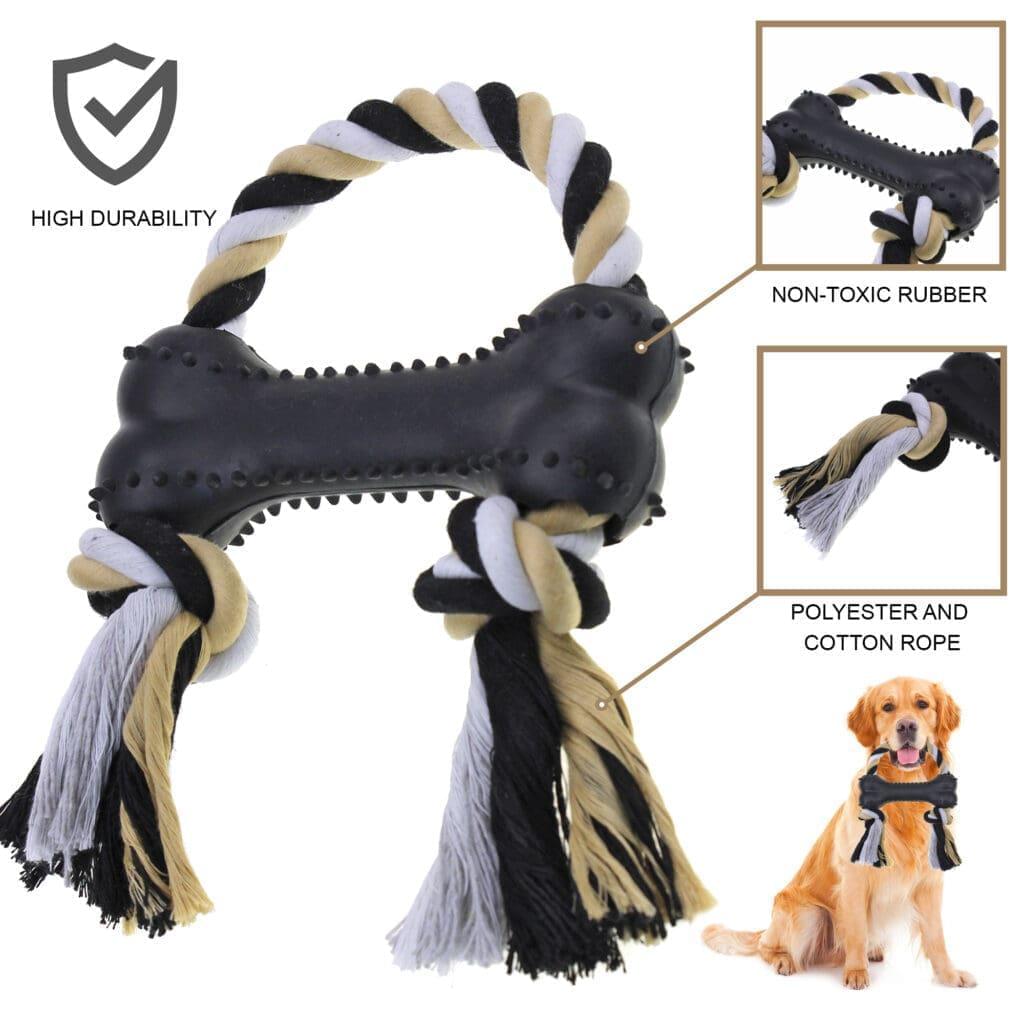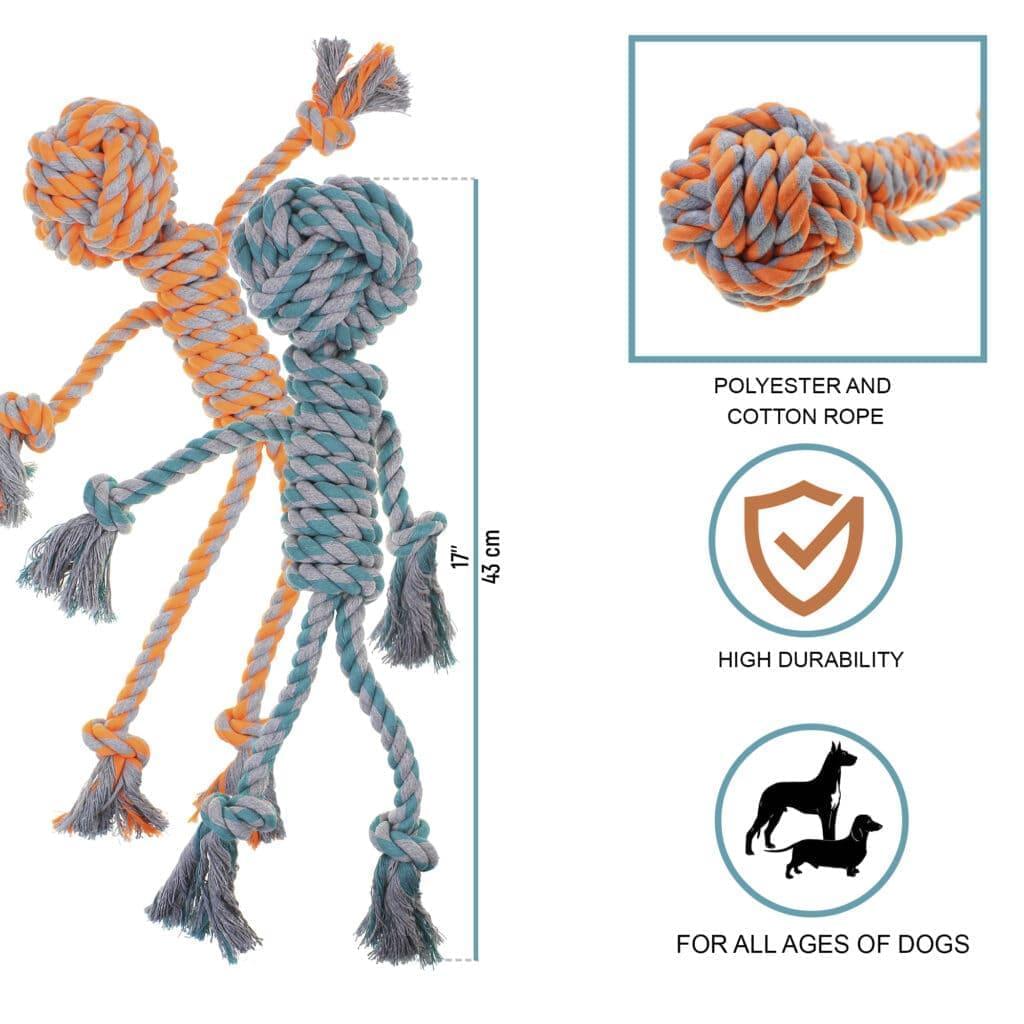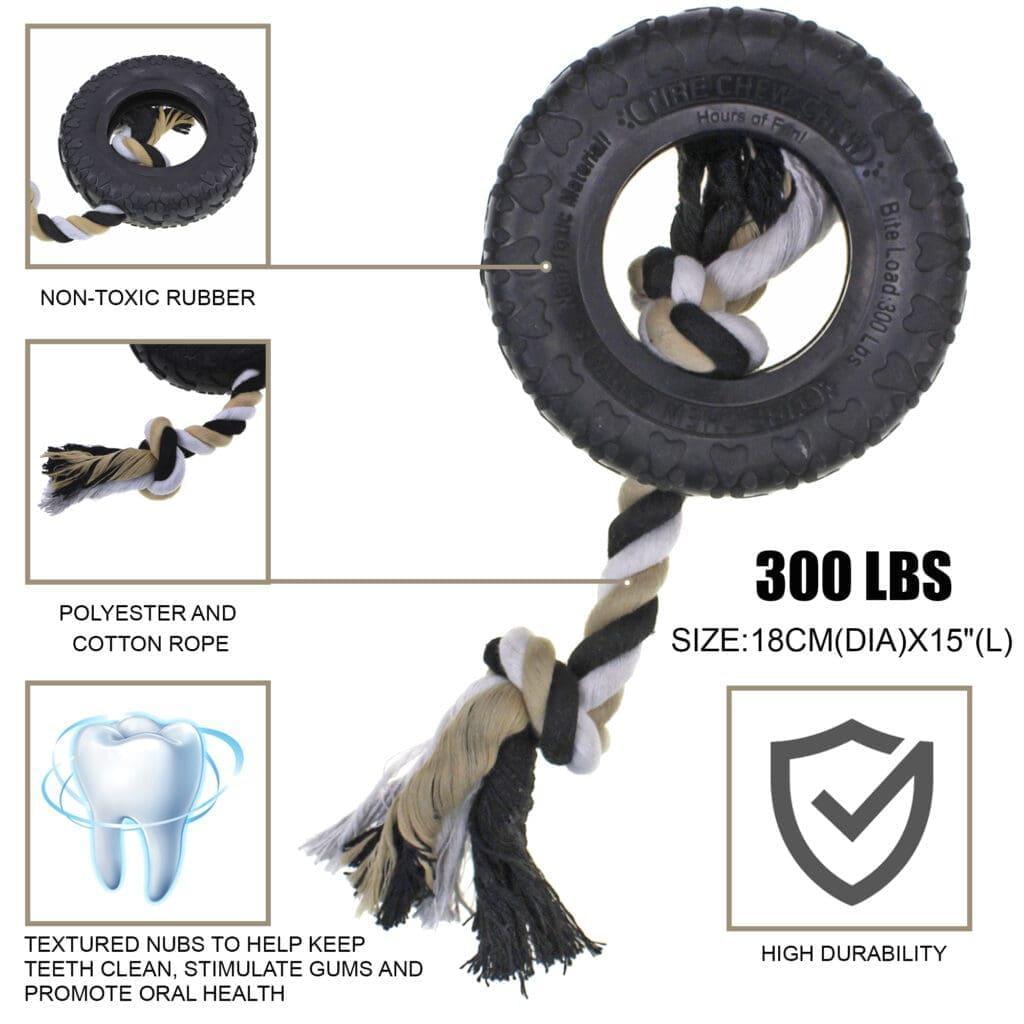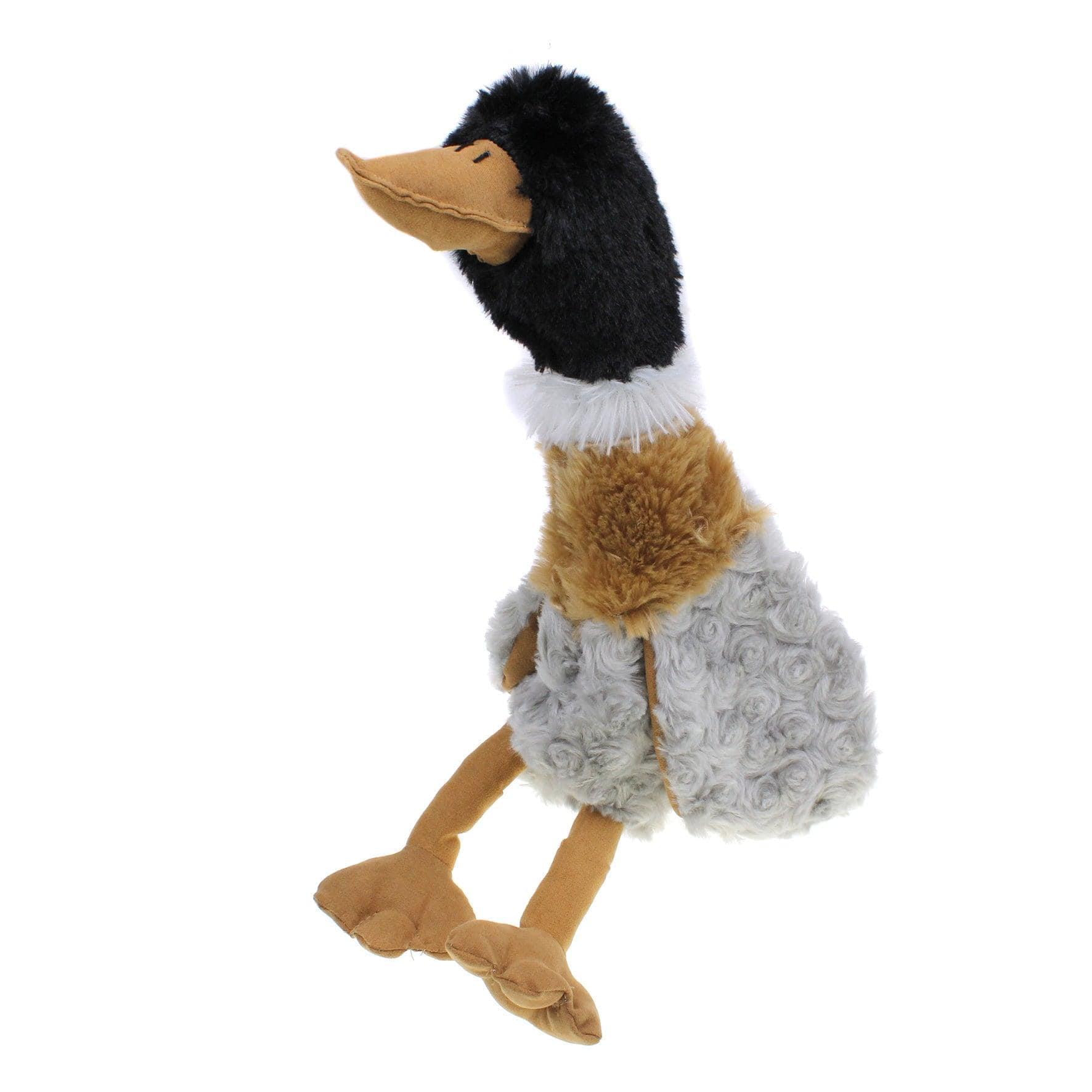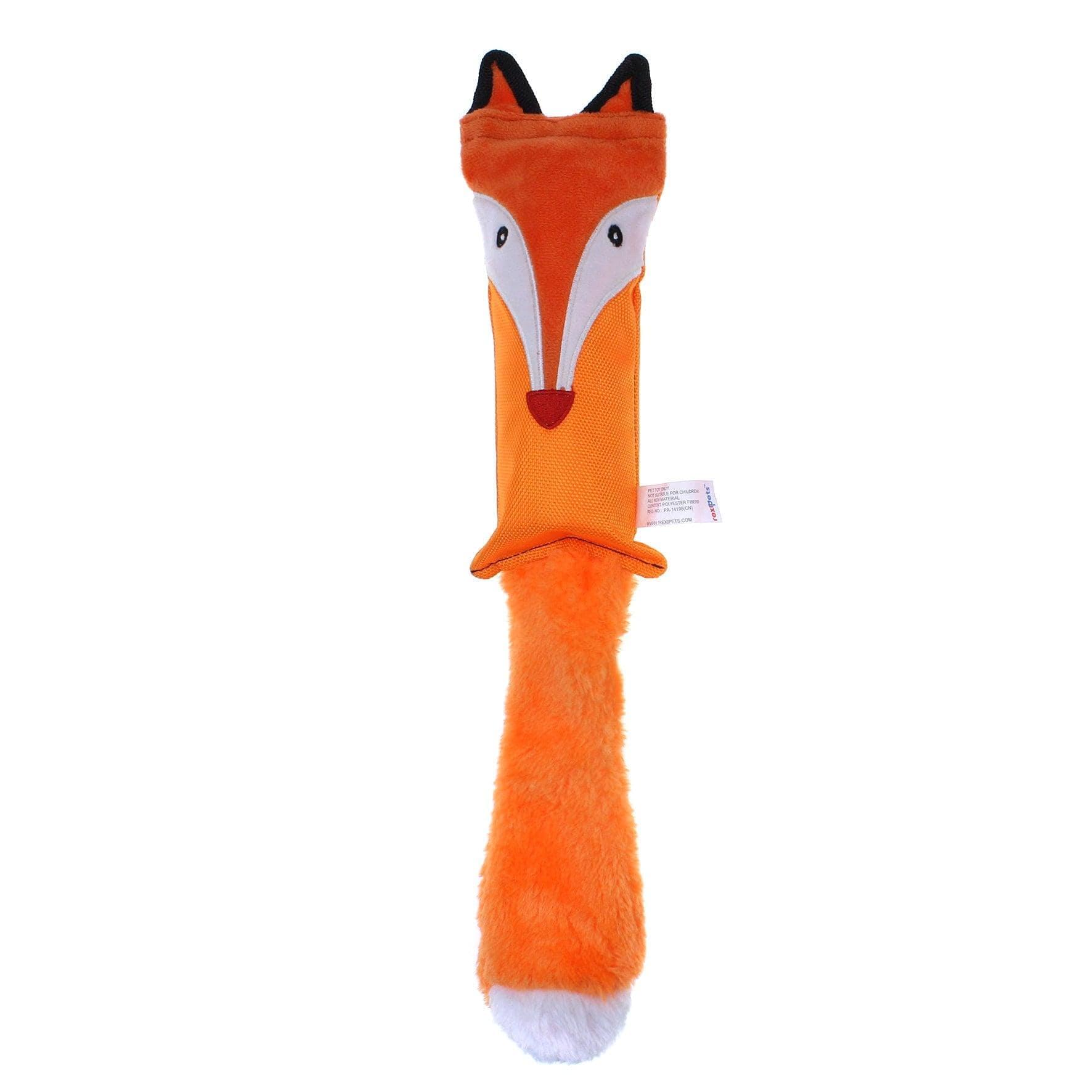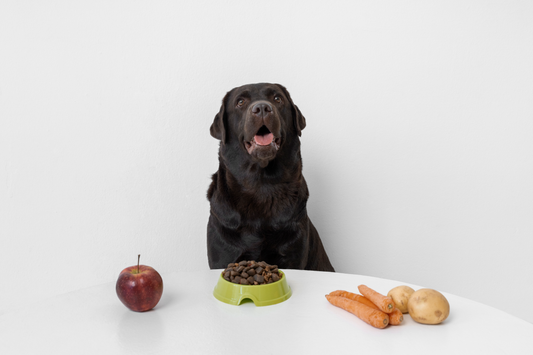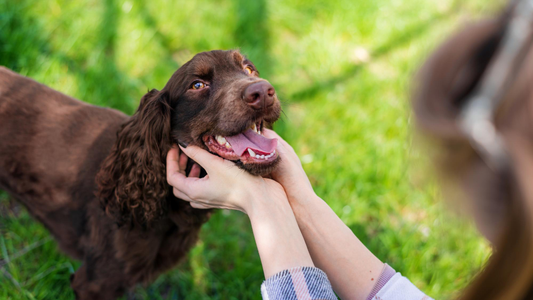The options can be confusing when choosing the right antler chew for your dog. However, two popular choices among pet owners shine through: deer antlers and elk antlers, each with unique qualities.
In this blog, we'll delve into the world of antler chews for dogs and explore the main differences between deer split antlers and elk split antlers for dogs. Understanding these distinctions between the two antler split dog chews, will help you make an informed decision about the best chew toy for your canine companion and ensure their safety and enjoyment.
So, let's unravel the mystery behind these natural dog chews and discover which antler variety might be the perfect match for your four-legged friend.
Deer Antler Overview

Deer antlers, those strong things on the heads of male deer, are not just to be viewed; they're also cool chew for dogs. Dogs like them because they're tough and last long, especially for dogs who love to chew a lot.
These deer antlers are super hard and dense, perfect for dogs biting hard stuff. But here's the thing: because they're so hard, some dogs might find them a bit too tough on their teeth.
Deer antlers are also on the smaller side, which is good if you have a smaller dog or do not have a lot of space. But because deer antlers are smaller, some dogs might finish chewing on them pretty quickly, and that's something to keep in mind.
Another thing to know is that deer antler chews don't have as much bone marrow inside as the other antler chews options. So, while some dogs enjoy the challenge of chewing on them, others might not find them as tasty.
Elk Antler Overview

Elk antlers have started quite the buzz among dog owners as fantastic chew toys for their furry friends. These natural wonders bring a lot to the table, offering a mix of toughness, flavor, and safety that makes them stand out in the world of canine entertainment.
One of the standout features of elk antlers is their durability. They strike a great balance, being tough enough to withstand a good chewing session but not too hard that it poses a risk to a dog's teeth. This makes elk antler chews an excellent choice for different types of dogs, catering to both the big chewers and those with more sensitive teeth.
Elk antlers are generally thicker and larger compared to some other antler dog chews. This size factor contributes to their longevity, providing dogs an extended antler chewing experience.
Larger antlers also mean more room for tasty marrow and bones, making elk antlers a flavorful and satisfying treat for our canine companions.
Speaking of flavor, elk antlers tend to be a hit among dogs. The higher amount of marrow inside adds an extra layer of yumminess, making these antlers a favorite. Dogs often find the taste enticing, turning chewing time into a more enjoyable experience.
The thickness of elk antlers plays a crucial role in safety. Because they are bulkier, dogs are less likely to try risky moves like snapping or breaking them, so they aren't a choking hazard. This safety feature makes elk antlers preferred for pet owners who prioritize their dog's well-being during playtime.
While split elk antlers might come with a slightly higher price tag compared to other chews, many owners consider it a worthy investment. The durability and the added benefits of safety and flavor from split elk antlers often outweigh the cost in the long run.
Deer Antler vs Elk Antler for Dogs: What is the Main Difference

Let's compare the two antlers side by side for better understanding:
-
Bone marrow
Elk antlers are bigger than deer antlers. The wide elk antler has way more mineral-rich marrow than deer antlers, giving your dog extra tasty marrow goodness.
This makes elk antler chews a top-notch choice, providing a chew that's long-lasting and super flavorful for your furry friend.
-
Safety
Picking the chunkier option, elk antler, is safer for your dog because it reduces the chance of your dog trying to break it.
The issue is that if the antler breaks, your dog could hurt their teeth. Thicker elk antlers can't be risky for your dog this way, so they can naturally chew on them more safely.
Choosing the thicker pieces is like giving your pup a softer, safer chewing adventure. So make sure your pick the antler that's the right size for your dog.
-
Flavor
Some dogs enjoy the challenge of chewing on deer antlers, but the lower marrow content might make them less appealing in flavor.
Elk antlers have the highest marrow content, which makes them softer and more flavorful, often making them the preferred choice among pups. The added taste can make the chewing experience more enjoyable for your pet.
-
Longevity
Despite deer antlers' toughness, some dogs might go through deer antlers more quickly due to their smaller size.
The larger size and thickness of elk antlers make them more durable and longer lasting than other antlers, providing your dog a more extended chewing experience before needing a replacement.
-
Chewing Behavior
Dogs that are aggressive chewers may appreciate the challenge posed by deer antlers, but pet owners need to monitor most dogs for potential dental concerns.
The safer design of elk antlers encourages dogs to chew more responsibly, making them a suitable choice for different species of dogs, including senior dogs, dogs with sensitive teeth, and those with moderate chewing habits.
However, if you have an aggressive chewer, deer antler chews might be the right antler chew for you.
-
Cost
Deer antlers are often more readily available and may be more cost-effective than elk antlers.
Due to their larger size, elk antlers may be priced higher, but their durability and added benefits can make them a worthwhile investment in your dog's dental health and enjoyment.
So basically, while deer antlers are known for their toughness, elk antlers strike a balance between durability and safety, offering a larger size, more marrow, and a generally safer chewing experience for your furry friend.
At the end of the day, the difference between the two choices depend on your dog's chewing habits and preferences.
Final Words
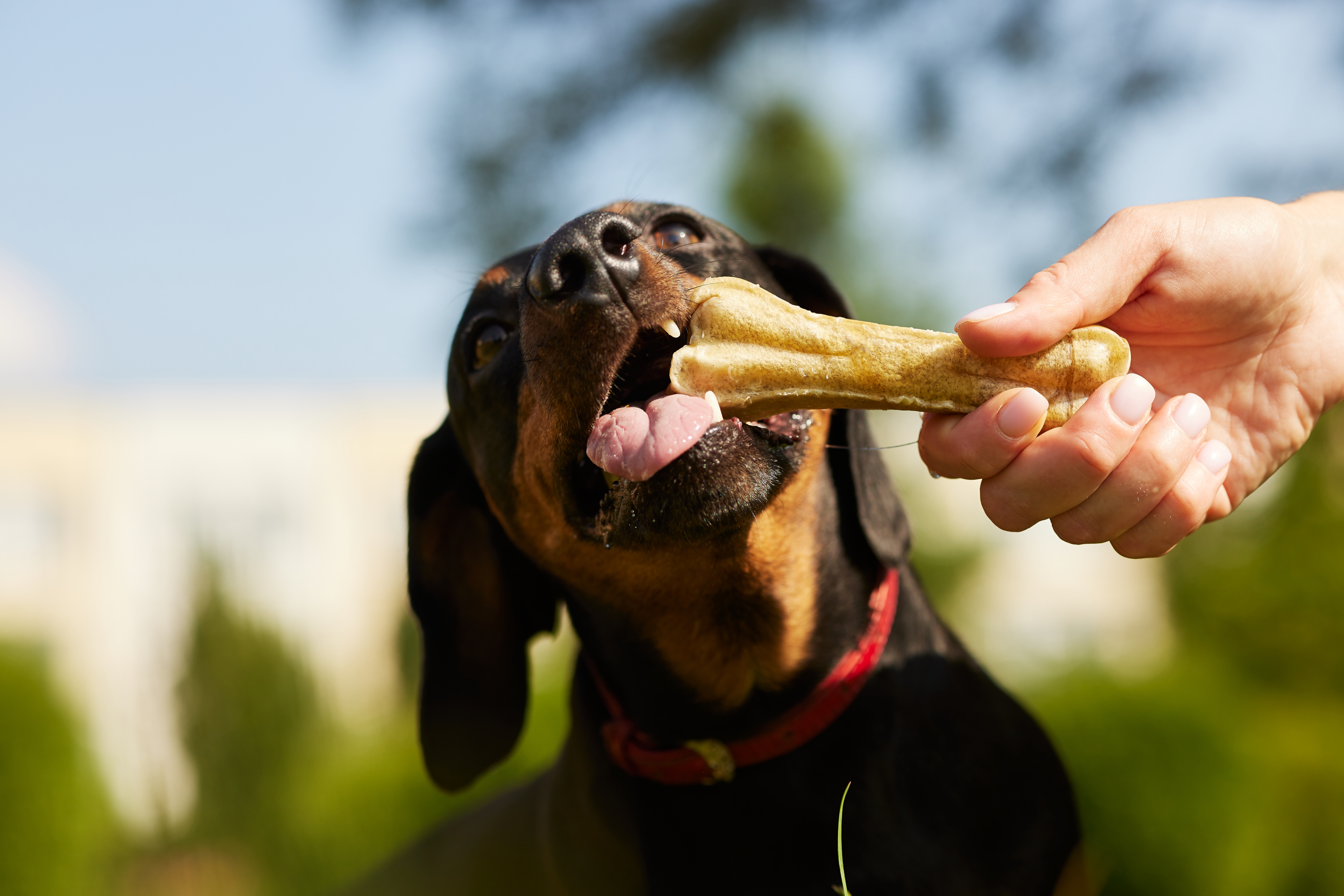
To sum up, picking between deer antlers and elk antlers for your dog's chew isn't just about what is available; it's about what's safe, beneficial, and yummy for your furry friend. You can even try moose antlers as an alternative. Because moose antler chews are also good for your dogs.
Each kind of antler has its special stuff, and knowing the differences helps you choose what's best.
Deer antlers are tough, which is good for dogs who love to chew hard. But they're on the smaller side and might not taste as good. Plus, because they're so hard, there's a chance your dog could hurt their teeth if they're not careful.
Now, elk antlers are like a perfect treat. They're strong but not too tough on your dog's teeth. They're bigger and have more yummy stuff inside, making them a hit with many dogs. And because they're thicker, your dog is less likely to try risky moves with them, making chewing safer.
So, when choosing between the two, think about your dog's size, how they like to chew, and what flavors they enjoy. Elk antler chews might cost a bit more, but they last longer and could be a better deal.
The main thing is to pick a chew that makes your dog happy and keeps them healthy. It's a small choice that can make a big difference in your dog's life.

FAQ
Do vets recommend elk antlers for dogs?
In a recent survey involving more than 1000 veterinarians, around 93% expressed disapproval of allowing dogs to chew on antlers. Additionally, 6% mentioned that they educate their clients about the potential risks associated with antler chewing but do not completely discourage it and would personally provide antlers to their dogs.
Less than 1% of veterinarians surveyed characterized antlers safe and were entirely comfortable with dogs chewing on antlers.
Are there specific antler types that are safer for dogs?
Elk antler chews are often considered safer due to their balanced hardness and thickness. However, individual dogs may have different preferences and reactions, so observing your dog's behavior is essential.
What signs should I look for if my dog experiences issues with antler chewing?
It is important to watch out for signs of discomfort, changes in eating habits, bleeding gums, or fractured teeth. If you notice any problems, consult your veterinarian ASAP. Regular dental check-ups are advisable for dogs engaging in chewing activities.
